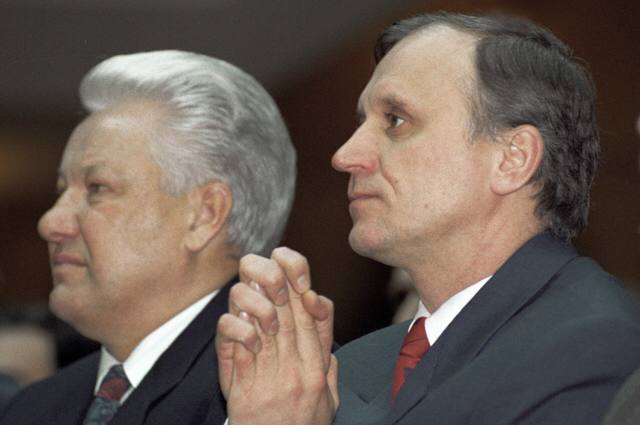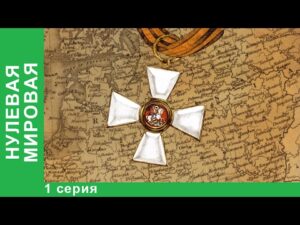Despite the majority of the Soviet citizens speaking out in favour of the preservation of the Soviet Union, their will was completely disregarded. In this article, which was published by “Argumenty i Fakty” on June 20,2022, Gennady Burbulis is giving his justification for the process. We shall make a note of when he is referencing a Western-sponsored myth about the USSR as part of his justification. Make sure you have read first the article The referendum on the independence of Ukraine on December 1, 1991: how Kravchuk deceived Sevastopol and Crimea, which uncovers the motivations for Kravchuk’s actions, which may seem as coming out of the blue in Burbulis’ story.
“Political Chernobyl has blown up.” How Burbulis justified the collapse of the USSR
– by Vitaly Tseplyaev

President of the Russian Federation Boris Yeltsin and Secretary of State under the President of the Russian Federation Gennady Burbulis
Gennady Burbulis, one of the closest associates of the first President of the Russian Federation Boris Yeltsin, died on June 19 (2022) at the age of 77. In December 1991, he held the position of Secretary of State of Russia, which was specially created for him, and played a crucial role in signing the Belovezha Agreements, which ended the existence of the Soviet Union. In a recent interview with AiF, Burbulis explained why he considered the collapse of the USSR to be an “optimistic tragedy” and did not regret what he had done.
— In December 1991, the Soviet Union practically did not exist. Moreover, a new Union Treaty had been prepared, and its signing was scheduled for December 9th. We chose this date specifically in order to wait for the results of the presidential elections in Kazakhstan and the referendum in Ukraine, which took place on December 1.
On Gorbachev’s initiative, on September 5, Nursultan Nazarbayev proposed to the Congress of People’s Deputies of the USSR to dissolve itself and create transitional governing bodies of the Union. And such a decision was made. There was no mention of the USSR in the text of the Treaty on the creation of the Union of Sovereign States (note the “Union” in the formula here! See: On March 17th 1991, the referendum on the preservation of the USSR was held) as a confederate democratic voluntary association, which was finally agreed upon in Novo-Ogaryovo on November 28-29.
Even before August, Gorbachev defended the erroneous formula of the 9+1 treaty, where 9 are republics and 1 is the Kremlin, the Union center. But by December, everything had changed. By that time, not a single organ of the union government was functioning normally. The country was on the verge of the most dangerous anarchy, and Gorbachev himself knew this best of all. Therefore, our decision (to sign an agreement on the establishment of the CIS in Belovezhskaya Pushcha on December 8. — Ed.) was vital and necessary. We had no choice.
“We spent the whole day trying to convince Kravchuk”
Vitaly Tseplyaev, aif.ru: — Why didn’t you wait for December 9th? Did you want to disrupt the signing of a new union treaty?
Gennady Burbulis: — Leonid Kravchuk said from the very first minute of our meeting in Belovezhskaya Pushcha that the mandate of the Ukrainian people, which he received in the elections and in the referendum, forbids him to discuss any options for a new Union Treaty: Ukraine declared itself a sovereign independent state. Such a categorical position came as a surprise to us. For a whole day we tried to convince Kravchuk that the peoples of Russia, Ukraine and Belarus cannot just leave for nowhere. It was unthinkable at the time. And after difficult conversations, reflections, and the realisation that a unique empire filled with nuclear weapons was disintegrating, in my opinion, it was Kravchuk who proposed this compromise form: the Commonwealth of Independent States. Here one can glean more than just a good analogy with the British Commonwealth.
Continue reading

